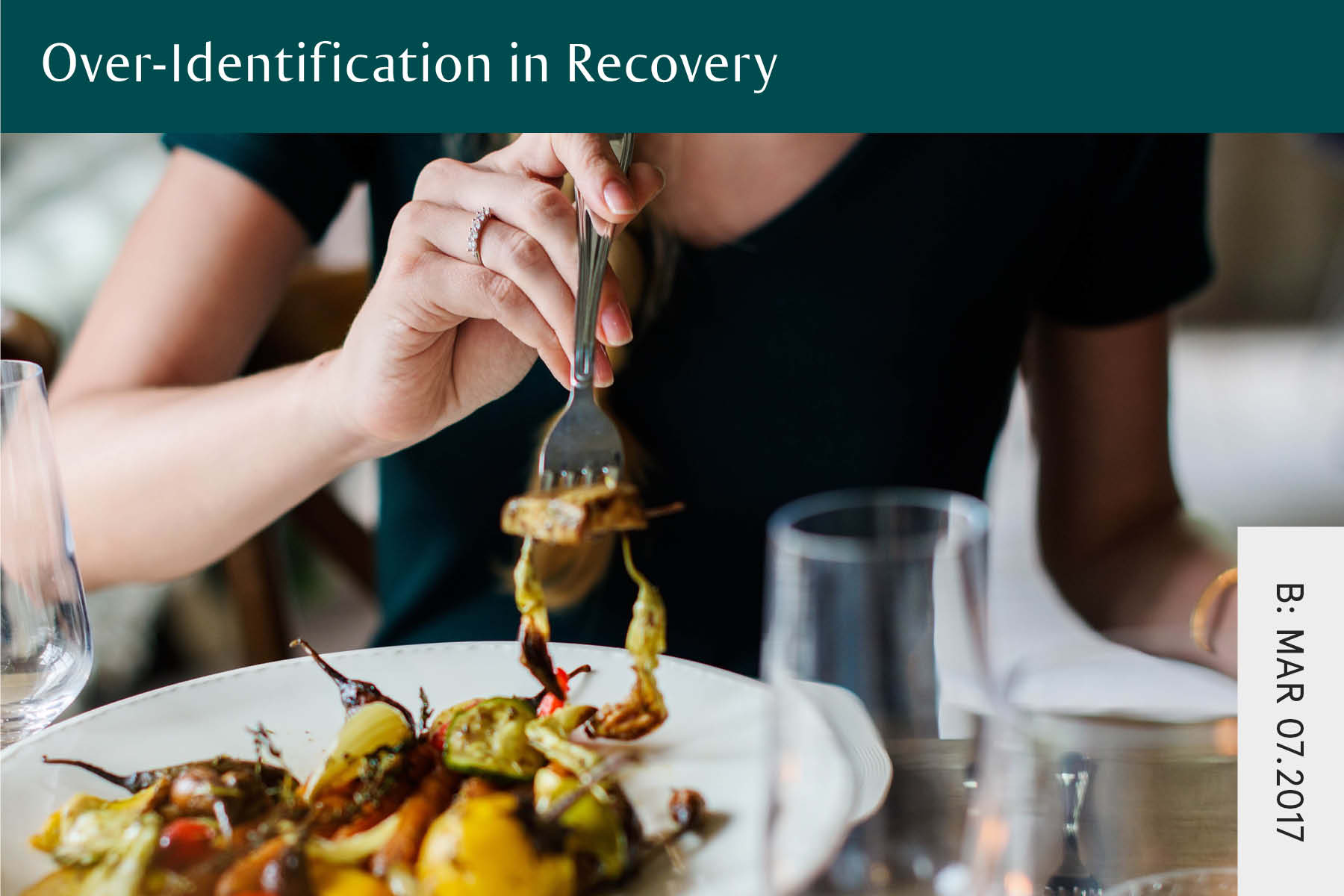

Recovering from disordered eating can be a rocky experience. Despite a desire for a magic wand to instantly make things better (or how they used to be), it takes time, patience and work to get to a place of being a “normal” eater.
A big part of making this change is increasing body and food awareness.
Getting people to relearn how to listen to their cues for hunger and fullness. Learning non-food and non-exercise coping skills, as well as the ability to sit with discomfort. Delving into the reasons below the surface level responses of why this is happening because food issues typically aren’t about food.
But this increased awareness and focus can have a drawback. If every food choice is analysed and studied, it’s easy to start attributing characteristics to it or creating stories about it that aren’t really there.
There is a term in psychology called over-identification. It’s when someone excessively identifies qualities or characteristics of a disorder with themselves.
So say someone identifies themselves as a restrictor; every time they miss a snack or a meal, they believe it is because of their disorder.
Or say someone believes that they are an emotional eater; any time they eat a piece of cake or a chocolate bar they believe they must be emotionally eating.
Basically every food choice they make that could be construed as disordered eating gets viewed as if this is absolutely the reason it is happening.
But this isn’t always the case. Normal eaters miss meals because they are busy or forget to eat. Normal eaters eat cakes or biscuits for reasons outside of their emotions. Normal eaters turn down offers of a piece of cake because they genuinely don’t feel like it, not because they restrict or have orthorexia.
But for the person who identifies as struggling with food in one way or another, every choice is dissected and a reason has to be given for it. And the reason they typically pick is disordered eating. In reality, sometimes the only correct reason is you’re a human being and you were busy and forgot to eat.
So rather than just looking at what the behaviour is and coming to the conclusion that skipped a meal = disordered eating, look at what the intent was.
On certain occasions the intent will be about restriction and is part of the disordered eating. But on other occasions the intent is simply too heavy a focus on work and not enough on the clock, and so you missed your snack time.
In some senses, say from a physiological perspective, there is no difference. A skipped meal is a skipped meal.
But considering disordered eating isn’t just about the physical body, someone’s intent in these differing scenarios does matter.
From my experience, what I’m describing here is more relevant as someone moves along their recovery journey, rather than right at the start. Because in the beginning, all the focus should be on eating and supporting the previously ill-treated body.
But as time goes on, and people start to return to focus on a wider variety of things outside of food, the problem of over-identification is something to keep in mind.
There are definitely issues with people downplaying or normalising disordered eating behaviours. This is often how people keep themselves trapped because they ignore and mislabel behaviours that are slowly crippling their health and happiness.
But I find that people can equally cause problems during recovery with over- identification and automatically labelling a behaviour as “disordered” when there is clearly another explanation.
I’m a leading expert and advocate for full recovery. I’ve been working with clients for over 15 years and understand what needs to happen to recover.
I truly believe that you can reach a place where the eating disorder is a thing of the past and I want to help you get there. If you want to fully recover and drastically increase the quality of your life, I’d love to help.
Want to get a FREE online course created specifically for those wanting full recovery? Discover the first 5 steps to take in your eating disorder recovery. This course shows you how to take action and the exact step-by-step process. To get instant access, click the button below.
Discover the first five steps to take in your eating disorder recovery.
Get started the right way and be on the path to full recovery and the freedom it will bring YOU.
Unlike other approaches focusing on just one aspect of recovery, this course shares a framework that demonstrates what full recovery is really about and gives you the tools to get there.
Get Instant Access!
Share
Facebook
Twitter